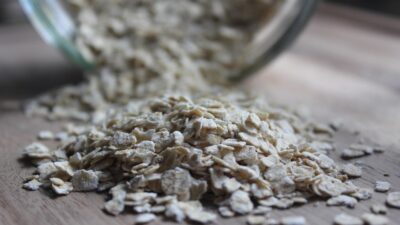Protein is a fundamental component of our diet, yet it often garners more attention for the muscles it helps build than for the myriad functions it serves in our bodies. As one of the three macronutrients—along with carbohydrates and fats—protein is essential not only for physical health but also for cognitive function and overall well-being. In this article, we’ll explore the science behind protein, examining how it transforms both our bodies and minds.
What Is Protein?
Proteins are large, complex molecules made up of smaller units called amino acids. There are 20 different amino acids, nine of which are classified as essential because they cannot be synthesized by the body and must be obtained through diet. Protein sources can be categorized as complete or incomplete; complete proteins, such as those found in animal products, contain all essential amino acids, while most plant-based proteins lack one or more of these amino acids.
Protein and Muscle Development
One of the most well-known benefits of protein is its role in muscle synthesis and repair. When we engage in physical activities, especially resistance training, our muscle fibers suffer micro-tears. Consuming protein stimulates muscle protein synthesis (MPS), which is the process through which the body repairs and builds new muscle tissue.
The Mechanism of Muscle Protein Synthesis
The process begins with the ingestion of protein, which is broken down into amino acids in the digestive system. These amino acids are then transported to the muscles, where they initiate a signaling pathway that promotes MPS. This process is regulated by several factors, including:
- Leucine Activation: Leucine, an essential amino acid, plays a pivotal role in activating mTOR (mechanistic target of rapamycin), a key regulator of cell growth and muscle hypertrophy.
- Timing and Quantity: The timing of protein intake is also essential. Consuming protein shortly after a workout can maximize MPS. Research suggests that around 20-30 grams of high-quality protein per meal is optimal for muscle growth in most individuals.
Protein and Weight Management
Protein also plays a significant role in weight management. It has a higher thermic effect than fats and carbohydrates, meaning that the body expends more energy to digest it. This results in a higher metabolic rate post-meal, which can facilitate weight loss.
Satiety and Appetite Control
Moreover, protein is known to enhance feelings of fullness (satiety). Studies have shown that high-protein diets can lead to reduced hunger levels and calorie intake, making it easier to maintain a healthy weight. This is particularly beneficial for individuals seeking to lose fat while preserving lean muscle mass.
Protein and Cognitive Function
While the physical benefits of protein are widely recognized, its impact on cognitive function is increasingly being documented. Amino acids serve as precursors for neurotransmitters—chemical messengers in the brain that influence mood, sleep, and cognitive performance.
The Role of Amino Acids
For example:
- Tyrosine: An amino acid that enhances the production of dopamine and norepinephrine, involved in mood regulation and cognitive flexibility.
- Tryptophan: A precursor to serotonin, which regulates mood and can aid in alleviating anxiety and promoting relaxation.
A well-balanced intake of protein supports stable blood sugar levels and enhances cognitive performance, especially in demanding situations requiring focus and concentration.
Sources of Protein
Incorporating a variety of protein sources is vital for obtaining all essential amino acids. Here are some examples:
- Animal Sources: Lean meats, poultry, fish, eggs, and dairy products.
- Plant Sources: Legumes (beans, lentils), nuts, seeds, whole grains, and soy products like tofu and tempeh.
For those following plant-based diets, combining different protein sources (such as rice and beans) can ensure intake of all necessary amino acids.
Conclusion
Protein is much more than just a nutrient for muscle building; it’s a key player in weight management and cognitive function. Understanding the science behind protein can empower individuals to make informed dietary choices that enhance both physical health and mental well-being. By incorporating a variety of protein sources into your diet, you can maximize the benefits of this vital macronutrient, transforming not just your body but also your mind. Whether you’re an athlete, a busy professional, or someone simply looking to improve overall health, prioritizing protein can lead to significant long-term improvements in your quality of life.



